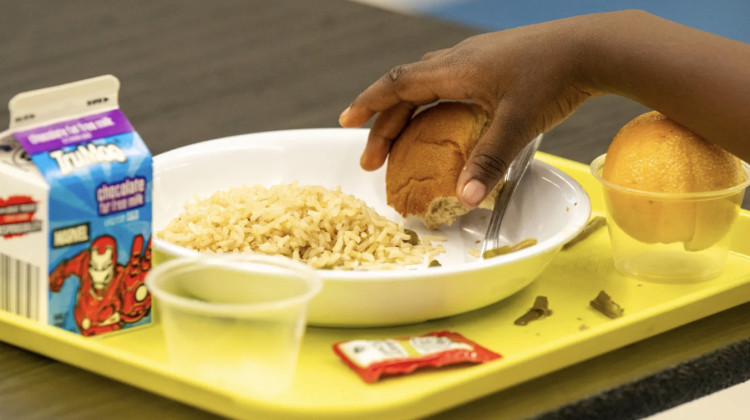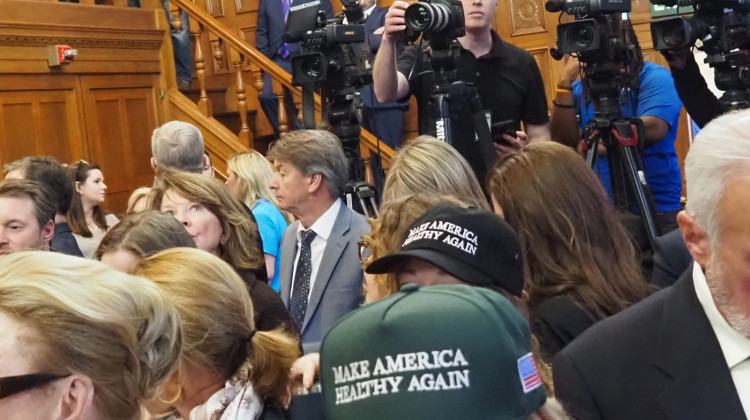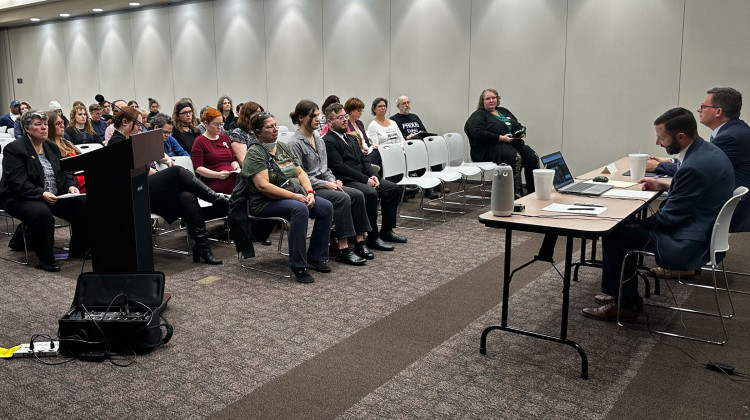The Indiana Senate has sent a bill allowing county to start their own syringe exchanges to the governor for his signature. Current law says programs must be approved by the state health department.
The state approved its first needle exchange in 2015 after a serious HIV epidemic, fueled by intravenous drug use, broke out in downstate Scott County.
Advocates of county approval, including State Health Commissioner Jerome Adams, say the bill eliminates a time-wasting step, and that local governments know best the health needs of their counties.
But other lawmakers said the law might make people less likely to set up the programs.
Sen. Erin Houchin (R-Salem)—who says she was “somewhat reluctant” to speak against the bill, calls her constituents less-than-enthusiastic about exchanges
“I actually think this legislation, as it’s written, will result in less exchanges because we are giving authority at the local level, and I know if it’s up to local representatives, they will have a boatload of people in these meetings saying ‘don’t do this,’” says Houchin.
Sen. Jean Leising (R-Oldenburg) who testified against the bill, referred to its latest fiscal note that says county approval would reduce Commissioner Adams’ work load.
“Probably eight requests in two years isn’t a tremendous number,” says Leising, referring to the number of counties that have received state approval for SEPs. “But if he is overloaded with requests, then certainly we need to make certain he can hire someone to help him with it.”
But Adams himself has said the bill is about eliminating a superfluous step in the process, and that county programs can still be approved in the original way, through the state.
Leising was one of several senators alarmed by the revelation during a Senate committee meeting last month some syringe services programs distribute more than needles -- including cotton wipes, and—most controversially—sterile cookers. Leising has referred to such kits as “starter packs” for drug use, and says she doesn’t feel comfortable making it easier for county governments to make them available.
Sen. Jean Breaux (D-Indianapolis) says the kits may seem counter-intuitive, but they serve syringe exchange programs’ overall purpose:
“By providing a clean needles, users will not share needles and further spread the disease,” Breaux says. “By providing cookers, a user will not dip the clean needle into an infected cooker.”
Gov. Eric Holcomb has expressed support for the bill.
 DONATE
DONATE










 Support WFYI. We can't do it without you.
Support WFYI. We can't do it without you.